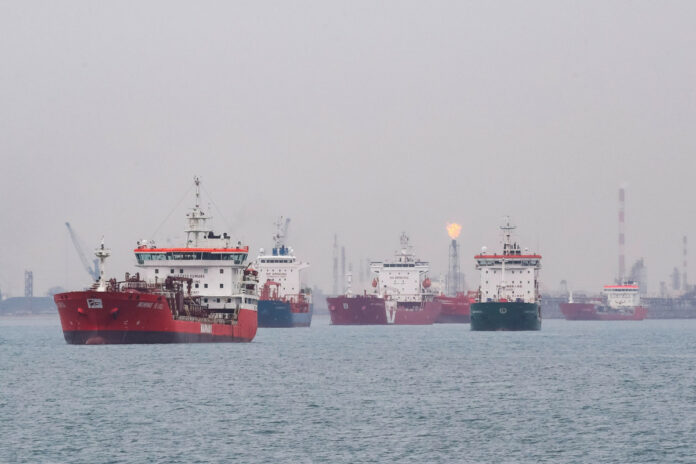Ali Abdul-Kadhim Daadoush- Researcher on the Iraqi and International Economy
Abstract:
There are three systems of fleets for transporting crude oil and other petroleum products, including the White or legal fleet, which enjoys global acceptance and transparency in dealings between exporting and importing countries. The Gray and Dark fleets, constituting the shadow tanker fleet, are involved in circumventing sanctions imposed on Russia.
After the war in Ukraine and the imposition of sanctions on Russia regarding oil exports, new carriers began to emerge in energy markets. These new marketers have bases and headquarters in Hong Kong and Dubai.
There are approximately 500 ships, many of them old tankers with mysterious ownership and insurance companies. They can play a crucial role in transporting Russian crude oil to China and other ports in Asia due to the price ceiling imposed by the Group of Seven industrialized nations, aiming to keep oil revenues in foreign currencies out of competition.
Ships often use tactics designed to hide their location or the source of the transported crude oil from Russian ports. This oil may be refined later in India and other countries before being re-exported to Western countries that impose sanctions on the Kremlin.
The Russian economy recovered after the sanctions imposed on it due to its use of shadow oil tankers to sell Russian oil to China and India.
Shadow tankers caused significant pollution and had a negative impact on environmental safety, as well as the safety of the crew and workers on these ships.
Shadow tankers had a negative impact on Iraqi oil exports, especially to India, causing Iraq to fall to the second position. Iraq used to export around 1.2 million barrels per day, but it decreased to 890,000 barrels per day.
Introduction:
Since the outbreak of the war in Ukraine, we have witnessed reduced engagement from previously dominant Western companies in the fields of trade, shipping, and insurance of Russian oil. This reality has contributed to the emergence of new players in the market for transporting and selling Urals crude oil. These new companies are based not only in Geneva but also, to a greater extent, in Hong Kong and Dubai.
Russia’s need for an alternative supply chain, known as “shadow tankers,” has become more urgent since the beginning of the war, especially after December 5, 2022, when the Western sanctions package began to be implemented. These measures prohibit European imports of seaborne crude and allow Russian ships to benefit from the services of Western logistics and insurance companies only if the price of their cargo is less than $60 per barrel (the maximum allowed for Russian oil prices). Sanctions on diesel and other refined products increased after the decision was implemented on September 5th, making alternative channels (shadow tankers) more critical.










